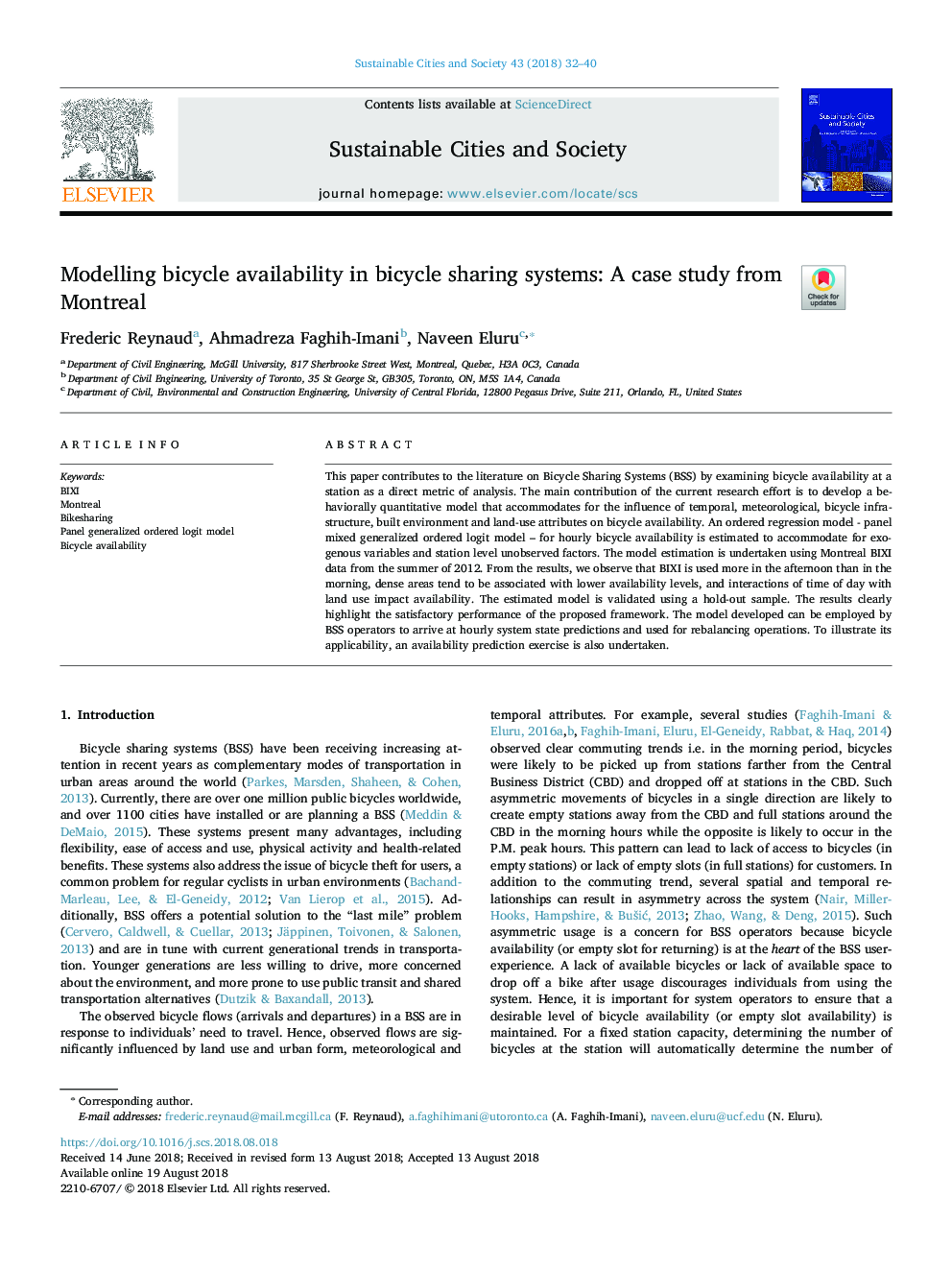| Article ID | Journal | Published Year | Pages | File Type |
|---|---|---|---|---|
| 8947176 | Sustainable Cities and Society | 2018 | 9 Pages |
Abstract
This paper contributes to the literature on Bicycle Sharing Systems (BSS) by examining bicycle availability at a station as a direct metric of analysis. The main contribution of the current research effort is to develop a behaviorally quantitative model that accommodates for the influence of temporal, meteorological, bicycle infrastructure, built environment and land-use attributes on bicycle availability. An ordered regression model - panel mixed generalized ordered logit model - for hourly bicycle availability is estimated to accommodate for exogenous variables and station level unobserved factors. The model estimation is undertaken using Montreal BIXI data from the summer of 2012. From the results, we observe that BIXI is used more in the afternoon than in the morning, dense areas tend to be associated with lower availability levels, and interactions of time of day with land use impact availability. The estimated model is validated using a hold-out sample. The results clearly highlight the satisfactory performance of the proposed framework. The model developed can be employed by BSS operators to arrive at hourly system state predictions and used for rebalancing operations. To illustrate its applicability, an availability prediction exercise is also undertaken.
Keywords
Related Topics
Physical Sciences and Engineering
Energy
Renewable Energy, Sustainability and the Environment
Authors
Frederic Reynaud, Ahmadreza Faghih-Imani, Naveen Eluru,
